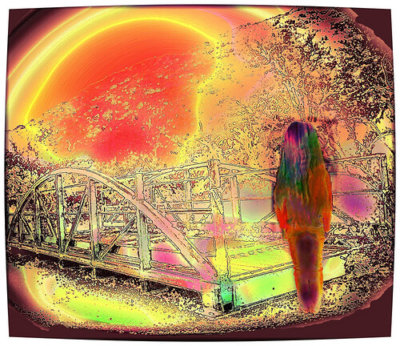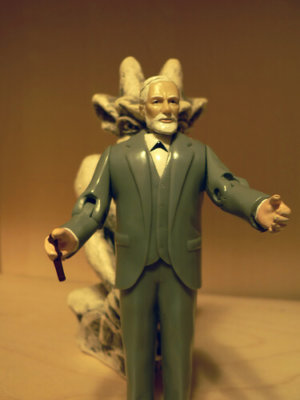What is Psychodynamic Psychotherapy?

By: garlandcannon
Psychodynamic psychotherapy is one of the most popular forms of talk therapy in the UK.
Used for individual therapy as well as couples therapy and family therapy, it is traditionally a more long-term form of psychotherapy.
Psychodynamic therapy is also a popular school of psychotherapeutic thought drawn from by integrative therapists.
What is psychodynamic psychotherapy?
The main premise of psychodynamic psychotherapy is that our present-day behaviour is a reflection of our past experiences and relationships. By examining your behaviour, and diving into your unconscious to see how these behaviours developed from childhood, you can begin to understand and change the conflicts and emotional issues in your life.
The main goals of psychodynamic psychotherapy can be seen as:
- to help you develop self-awareness
- to help you understand your past
- to show you how your past has influenced and formed your present
- to understand why you act the way you do in relationships and in life
- to leave you feeling more capable of managing life in the present.
A brief history of psychodynamic psychotherapy

By: Enrico
Psychodynamic psychotherapy is one of the older forms of Western talk therapy.
The first, led by Freud, was psychoanalytical psychotherapy. It proposed that the answers to our challenges in life are hidden in the unconscious, and can rarely be found by our thoughts or present awareness. It was also psychoanalytical psychotherapy that suggested our problems as adults are caused by our painful childhood experiences. To explore the unconscious psychoanalysts rely on the tools of free association and dream interpretation.
Psychodynamic psychotherapy was the next movement in psychotherapeutic thought. It still focuses on exploring the unconscious for childhood trauma and for the roots of your present-day dysfunctional behaviours. And it, too, uses the tools of free association and analysing dreams.
So psychodynamic psychotherapy is heavily influenced by psychoanalytical thought, and can be seen as a simpler form of psychoanalysis.
In fact it was Freud himself who first bought the idea of ideas of ‘dynamics’ to the human psyche. He was influenced by theories of thermodynamics to see the mind as a flow of energy. This is why he coined the term ‘libido’, which he saw as psychological energy.
But it was others who took this idea of the psyche as a series of relating forces much further, namely Carl Jung, Melanie Klein, and Alfred Adler. The focus became looking at conscious versus unconscious motivation, and how these two things relate.
So psychodynamic psychotherapy differs from its predecessor because it pays attention to conscious thinking as well as explores the unconscious. It also recognises and focuses on the therapist-client relationship as a crucial tool in the therapy room. And it tends to be less intense, with one session a week instead of the several that psychoanalysis can involve.
The main ideas of psychodynamic psychotherapy
1. Many of our issues arise from unrecognised conflicts.
These conflicts are often hidden in the unconscious. Or they are things that our mind has twisted around so we can’t see them clearly.
2. Our childhood experiences directly affect our adult behaviours.
If we act in ways that cause us difficulties, this tends to arise from early experiences that need to be discovered and understood, including childhood trauma.

By: Celestine Chua
3. Difficult childhood experiences cause us to create ‘defences’.
‘Defences’ are behaviours we begin as children to help us to feel safe and to avoid further conflict. But our defences cause us problems as adults. They can include things like repression (blocking all memories of what has happened to us), denial (refusing to acknowledge facts even with evidence), and disassociation (losing track of thoughts and time when facing stress, as if you ‘go off somewhere else’).
4. Your issues and problematic relationship patterns will play out in the way you relate to your therapist.
The way you act around family and friends will be reflected in the way you act around your therapist. You might also practice ‘transference‘ with your therapist – putting your feelings for someone close to you or from your past, like a parent or partner, onto your therapist. Your psychodynamic therapist will use the relationship between you as a way to help you explore your relationships and issues further.
5. Free association is an effective way to explore your issues.
This involves saying whatever comes up for you in a session, even if it doesn’t seem logically important or connected to what you were just talking about.
How is psychodynamic psychotherapy different than other forms of therapy?
Psychodynamic therapy is a ‘depth’ therapy. It aims to go right to the roots of your issues and deeply into your unconscious.
Other forms of modern therapy are less intense. Cognitive behavioural therapy (CBT) especially does not look much to your past or aim to find the roots of your issues. It focuses instead on your thoughts, feelings and actions in the present. (Read our piece on Psychodynamic vs CBT for a more detailed comparison).
Psychodynamic talk therapy also places a higher value on the client-therapist relationship than a therapy like CBT. That said, most modern therapists now honour the power of the therapeutic relationship. And many newer forms of talk therapy, such as schema therapy, make this even more of a focus than psychodynamic therapy.
Interested in trying psychodynamic therapy?
You can work with a purely psychodynamic psychotherapist, or an integrative therapist who uses psychodynamic principles. If you’d prefer to try a short-term therapy, you might want to consider cognitive analytic therapy (CAT), a more recent hybrid that draws from psychodynamic and cognitive therapies.
Use your first session to ask the therapist any question you might have about the way they work, what experience they have, and if they think psychodynamic psychotherapy is the right fit for your particular issues.
Harley Therapy connects you with experienced therapists trained in psychodynamic psychotherapy to in London, UK, as well as via online therapy sessions. All our practitioners have a minimum of ten years experience working with clients just like you, and are committed to creating a warm and welcoming environment.
Have a question about psychodynamic psychotherapy we haven’t answered? Comment below.




